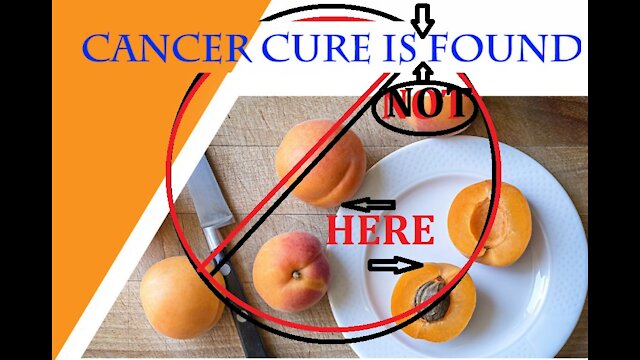Stress is a universal experience that can have profound effects on our health. In this article, we’ll explore the relationship between stress and illness, with a particular focus on its potential impact on cancer. We’ll delve into how stress affects the immune system, the role of alternative cancer treatments, the importance of evidence-based medicine, and the significance of managing stress during cancer treatment.
Table of contents
- The Immune System and Stress
- Managing Stress
- Alternative Cancer Treatments
- The Role of Clinical Trials
- Unproven Alternative Therapies
- Cancer Treatment Overview
- Support for Cancer Patients
- Alternative Cancer Treatments in Tijuana
- The Enigma of Chelation Therapy
- The Importance of Evidence-Based Medicine
- Stress Management and Health Behaviors
- Role of Social Support
- Conclusion
- Frequently Asked Questions (FAQs)
- Related Articles:
The Immune System and Stress
Stress can take a toll on our immune system, making it less effective in defending the body against diseases. Chronic stress, characterized by prolonged periods of high stress levels, can lead to weakened immunity. This weakening effect is a cause for concern, as it may increase susceptibility to various illnesses, including cancer.
Managing Stress
Coping with stress is essential for maintaining overall health. We’ll explore effective coping mechanisms, such as mindfulness techniques and stress-reduction exercises. Additionally, we’ll highlight the importance of social support systems in helping individuals manage stress during challenging times.
Alternative Cancer Treatments
The allure of alternative cancer treatments often stems from a desire to explore different options outside of traditional medicine. However, it’s crucial to differentiate between proven and unproven treatments. We’ll emphasize the importance of evidence-based medicine and discuss the role of clinical trials in determining treatment effectiveness.
The Role of Clinical Trials
Clinical trials play a pivotal role in advancing cancer treatment. We’ll explain why these trials are essential in evaluating new therapies and ensuring their safety and efficacy. Understanding the scientific validation process will help readers make informed decisions about their treatment options.
Unproven Alternative Therapies
Caution is necessary when considering alternative therapies that lack scientific support. We’ll highlight the potential risks associated with unproven treatments and the importance of consulting with healthcare professionals who rely on evidence-based approaches.
Cancer Treatment Overview
Cancer treatment is a complex process that encompasses various aspects of medical care. We’ll provide an overview of the different components involved in treating cancer, shedding light on the influence of stress on health behaviors.
Support for Cancer Patients
Organizations like the American Cancer Society offer vital support to cancer patients. We’ll discuss initiatives such as Hope Lodge and Angel Wings, which provide accommodation and transportation assistance to those undergoing treatment.
Alternative Cancer Treatments in Tijuana
Some individuals seek alternative cancer treatments in clinics located in Tijuana, Mexico. We’ll explore the treatments offered in these clinics, including high-dose vitamin C and hyperthermia therapy. However, we’ll also emphasize the lack of scientific evidence supporting these treatments.
The Enigma of Chelation Therapy
Chelation therapy remains a topic of curiosity and debate. We’ll introduce chelation therapy as a subject of discussion in the article, leaving readers intrigued about its potential benefits and drawbacks.
The Importance of Evidence-Based Medicine
Relying on evidence-based medicine is paramount in cancer treatment. We’ll delve into the rigorous process of clinical trials, explaining how scientific validation ensures that treatments are safe and effective.
Stress Management and Health Behaviors
Stress can impact health behaviors, leading to unhealthy choices in diet, sleep, and other areas. We’ll discuss how stress management is essential during cancer treatment to maintain a healthy lifestyle.
Role of Social Support
Social support plays a vital role in helping individuals navigate the challenges of cancer treatment. We’ll explore how a strong support network can positively affect a patient’s journey.
Conclusion
In conclusion, this article has examined the intricate relationship between stress and illness, focusing on the potential implications for cancer. We’ve stressed the importance of evidence-based medicine, the significance of clinical trials, and the need for effective stress management during cancer treatment. By staying informed and seeking reliable medical guidance, individuals can make informed decisions about their health.
Frequently Asked Questions (FAQs)
Chronic stress can weaken the immune system, making the body more susceptible to illnesses.
Evidence-based medicine ensures that treatments are safe and effective, backed by scientific validation.
Some alternative treatments have shown promise in clinical trials, but it’s essential to consult with healthcare professionals.
Stress can lead to unhealthy choices, such as poor diet and disrupted sleep patterns, which can impact overall health.
A strong support network can provide emotional and practical assistance, making the cancer journey more manageable.
